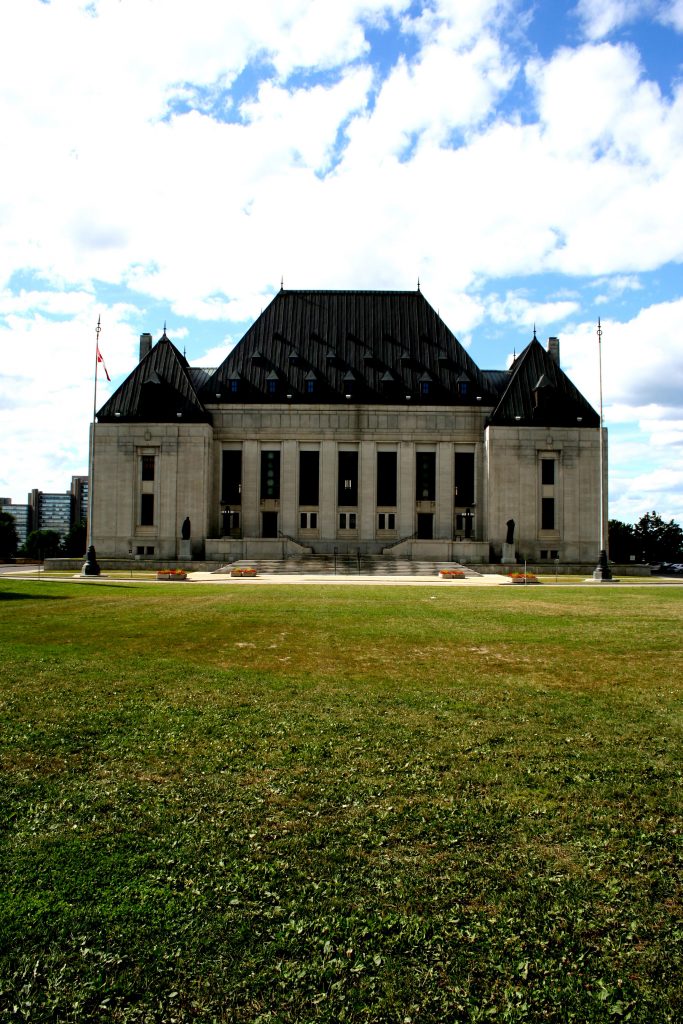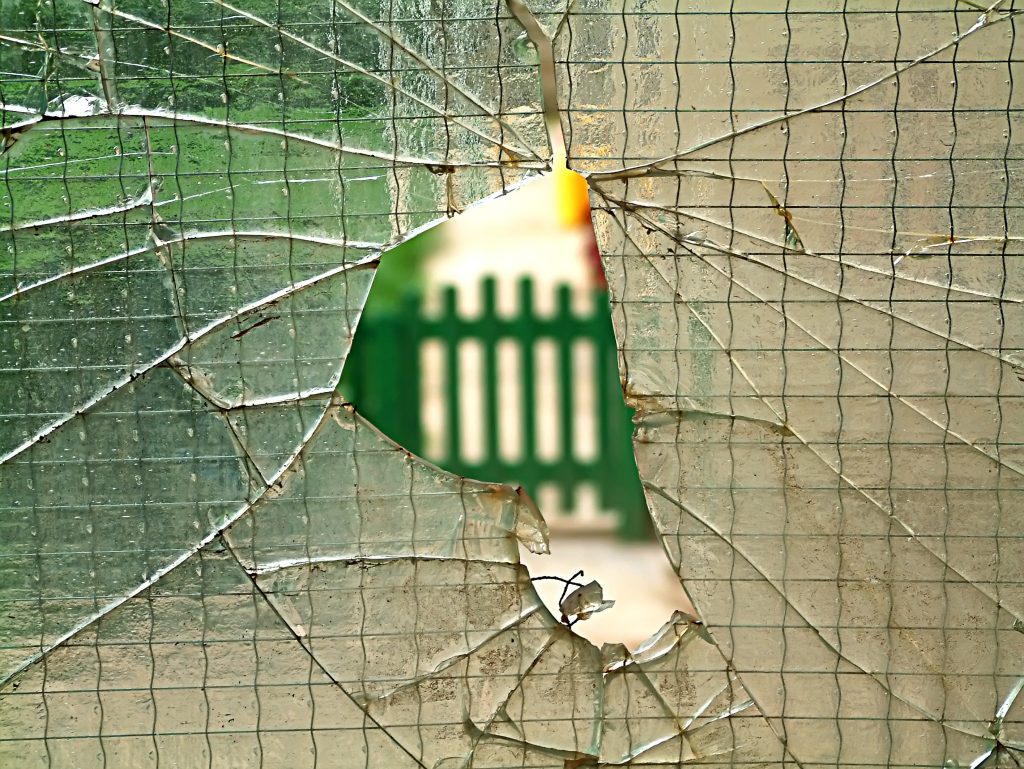 When asserting a claim under constitutional law, the moving party must meet a specific standard that is easily navigated by an attorney. As one Louisiana man recently learned, without the help of a lawyer, navigating these pleading standards can be difficult and detrimental to the outcome of your case.
When asserting a claim under constitutional law, the moving party must meet a specific standard that is easily navigated by an attorney. As one Louisiana man recently learned, without the help of a lawyer, navigating these pleading standards can be difficult and detrimental to the outcome of your case.
In this case, Ms. Young, a health care provider, picked up Mr. Wright, a patient, from a doctor’s appointment. In the course of dropping Mr. Wright off at his house, Ms. Young noticed he escaped from her car. Following her company’s protocol, Ms. Young called the police hoping for help in locating Mr. Wright. When police located Mr. Wright, he assaulted one of the police officers and the officers subsequently criminally charged him.
Mr. Wright believed Ms. Young and her employer, Superior Options, were at fault for the incident leading to the officer’s assault. Mr. Wright filed claims against the parties under the premise of 42 U.S.C. § 1983 which imposes liability on anyone who impedes upon someone else’s rights provided by the Constitution. He claimed that his constitutional right barring cruel and unusual punishment was violated by the health care providers. Mr. Wright also claimed that, under Louisiana law, Ms. Young was negligent and intentionally caused him emotional distress. The Trial Court denied Mr. Wright’s federal claims because his case was not supported by evidence, but Mr. Wright was not satisfied with the Trial Court’s decision and appealed.
 Louisiana Personal Injury Lawyer Blog
Louisiana Personal Injury Lawyer Blog


 In a lawsuit, a client’s claims need to be monitored every step of the way. If an issue is revived in an appeal, an attorney must keep track of it and reinforce it at each new representation. If an attorney doesn’t continue to assert a claim, a court might think the party abandoned the issue and the court will not review it on appeal. Keeping these claims alive is not a major undertaking, but as Glenn E. Alphonse, Jr. learned in his recent case, even the slightest misstep in this area can make or break an outcome.
In a lawsuit, a client’s claims need to be monitored every step of the way. If an issue is revived in an appeal, an attorney must keep track of it and reinforce it at each new representation. If an attorney doesn’t continue to assert a claim, a court might think the party abandoned the issue and the court will not review it on appeal. Keeping these claims alive is not a major undertaking, but as Glenn E. Alphonse, Jr. learned in his recent case, even the slightest misstep in this area can make or break an outcome.  We enter into contracts all the time without putting the agreement in writing; we form contracts when we buy a cup of coffee, when we shop online, etc. Some types of contracts, however, are required by law to be in writing. Kevin and Monica Schmidt (the Schmidts) learned this the hard way when they could not enforce an oral agreement to frack oil wells in Beauregard Parish.
We enter into contracts all the time without putting the agreement in writing; we form contracts when we buy a cup of coffee, when we shop online, etc. Some types of contracts, however, are required by law to be in writing. Kevin and Monica Schmidt (the Schmidts) learned this the hard way when they could not enforce an oral agreement to frack oil wells in Beauregard Parish. Sometimes we don’t have the best neighbors. For example, a neighbor might block access to your land, arguing that it is, in fact, the neighbor’s land you traverse on a daily basis. When such a dispute arises, get a good real estate attorney. If ingress to a piece of your property requires you to pass over someone else’s land, you might need to seek an easement. An easement is simply a right of passage through someone else’s land. This can be done in one of three ways: (1) by agreement, (2) by traditional or historic use, or (3) by necessity. In a recent case, the parties fought over the right to pass over a gravel road in Webster Parish, Louisiana. In the case, the court discusses its discretion in deciding whether an easement is necessary.
Sometimes we don’t have the best neighbors. For example, a neighbor might block access to your land, arguing that it is, in fact, the neighbor’s land you traverse on a daily basis. When such a dispute arises, get a good real estate attorney. If ingress to a piece of your property requires you to pass over someone else’s land, you might need to seek an easement. An easement is simply a right of passage through someone else’s land. This can be done in one of three ways: (1) by agreement, (2) by traditional or historic use, or (3) by necessity. In a recent case, the parties fought over the right to pass over a gravel road in Webster Parish, Louisiana. In the case, the court discusses its discretion in deciding whether an easement is necessary.  The importance of adhering to required timelines and District Court orders could not be overstated. A failure to comply with court deadlines can result not only in your claims being dismissed but also a heavy fine. Former inmates at Richwood Correctional Center (“RCC”) learned that the hard way on appeal in the Louisiana Second Circuit of Appeal.
The importance of adhering to required timelines and District Court orders could not be overstated. A failure to comply with court deadlines can result not only in your claims being dismissed but also a heavy fine. Former inmates at Richwood Correctional Center (“RCC”) learned that the hard way on appeal in the Louisiana Second Circuit of Appeal. How familiar are you with your motorist insurance policy? Are you fully covered for uninsured/underinsured motorist coverage? In Louisiana, uninsured motorist coverage protects you if you’re in an accident with an at-fault driver who doesn’t carry liability insurance. Underinsured motorist coverage, on the other hand, steps in when you’re in an accident with an at-fault driver whose liability limits are too low to cover the damage or medical expenses. Every insurance policy in Louisiana is considered to include uninsured/underinsured motorist coverage unless it is validly rejected. In a recent case, the Louisiana Fourth Circuit Court of Appeal found that an electronic signature on an online form was valid to uphold an insurance policy.
How familiar are you with your motorist insurance policy? Are you fully covered for uninsured/underinsured motorist coverage? In Louisiana, uninsured motorist coverage protects you if you’re in an accident with an at-fault driver who doesn’t carry liability insurance. Underinsured motorist coverage, on the other hand, steps in when you’re in an accident with an at-fault driver whose liability limits are too low to cover the damage or medical expenses. Every insurance policy in Louisiana is considered to include uninsured/underinsured motorist coverage unless it is validly rejected. In a recent case, the Louisiana Fourth Circuit Court of Appeal found that an electronic signature on an online form was valid to uphold an insurance policy.  A unique feature of our American federal system is the separate yet intertwined system of state and federal courts. Sometimes a dispute may begin in a state court and end up in federal court. And sometimes, there may end up being parallel proceedings in both the state and federal systems. There are limits, however. A federal court can decline to hear an action if there is a parallel proceeding in the state court system. Recently, the Fifth Circuit Court of appeal was called upon to determine whether a district court erred when it declined to hear a declaratory action and related counterclaims.
A unique feature of our American federal system is the separate yet intertwined system of state and federal courts. Sometimes a dispute may begin in a state court and end up in federal court. And sometimes, there may end up being parallel proceedings in both the state and federal systems. There are limits, however. A federal court can decline to hear an action if there is a parallel proceeding in the state court system. Recently, the Fifth Circuit Court of appeal was called upon to determine whether a district court erred when it declined to hear a declaratory action and related counterclaims. Reasonable minds could perhaps agree that “reasonableness” is a word not easily defined. What is reasonable to one person may or may not be reasonable to another. Yet, “reasonableness” is often the term used to measure the soundness of lower courts’ decisions on appeal. And in the case at hand, a “reasonable” conclusion by one person completely barred an entire personal injury lawsuit against multiple parties.
Reasonable minds could perhaps agree that “reasonableness” is a word not easily defined. What is reasonable to one person may or may not be reasonable to another. Yet, “reasonableness” is often the term used to measure the soundness of lower courts’ decisions on appeal. And in the case at hand, a “reasonable” conclusion by one person completely barred an entire personal injury lawsuit against multiple parties. Filing and pursuing a lawsuit is no small task. Besides the often-significant monetary aspect, a plaintiff (the party filing the lawsuit) should be prepared for a large time commitment and effort in providing the necessary evidence to support their case. Good lawyers know how to aid their clients in gathering evidence and navigating the logistical aspects of a lawsuit as efficiently as possible. Litigation can sometimes take years, but a seasoned lawyer will know how to provide the motivation clients need to successfully pursue their claims and reach recovery. In a recent case out of Zachary Louisiana, the plaintiff filed a lawsuit he was simply not prepared to effectively maintain.
Filing and pursuing a lawsuit is no small task. Besides the often-significant monetary aspect, a plaintiff (the party filing the lawsuit) should be prepared for a large time commitment and effort in providing the necessary evidence to support their case. Good lawyers know how to aid their clients in gathering evidence and navigating the logistical aspects of a lawsuit as efficiently as possible. Litigation can sometimes take years, but a seasoned lawyer will know how to provide the motivation clients need to successfully pursue their claims and reach recovery. In a recent case out of Zachary Louisiana, the plaintiff filed a lawsuit he was simply not prepared to effectively maintain. The goal of marriage is often “happily ever after.” Sometimes, it does not end up working out that way. What happens when a child born during a marriage is the result of an affair? What legal rights does the real father have towards establishing that the child is his? The following case out of Acadia Parish demonstrates Louisiana’s jurisprudentially-created doctrine of avowal.
The goal of marriage is often “happily ever after.” Sometimes, it does not end up working out that way. What happens when a child born during a marriage is the result of an affair? What legal rights does the real father have towards establishing that the child is his? The following case out of Acadia Parish demonstrates Louisiana’s jurisprudentially-created doctrine of avowal.